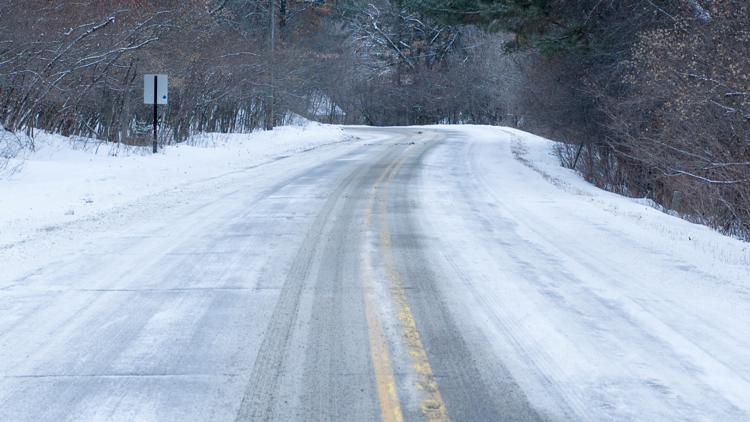NORFOLK, Va. — When winter weather is expected in any part of the country, transportation workers warm up the infamous salt trucks. Crews work hours before a snow or ice event to try and make sure the roads don't freeze over.
The reason that salt is used to cure the streets is due to its chemical makeup.
The number one salt used to help potentially icy roads is made up of sodium chloride, more commonly known as rock salt. This is the same chemical salt you find at the dinner table.
When salt comes into contact with water, the salt lowers the freezing point of the water. This means that it would take much colder temperatures to freeze the liquid on the roads than normal.
Instead of the water freezing at 32 degrees, the road temperatures would need to be in the 20s for ice to form in the presence of salt. The scientific name for this process is called "freezing point depression."
Two other salts can be used to alleviate icy conditions. According to the Environmental Protection Agency (EPA), magnesium chloride is a safer alternative to sodium chloride because sodium chloride can corrode vehicles. Magnesium chloride is more expensive to spread on the roads though because it takes twice as much salt to cover the streets.
The third salt is calcium chloride, but it’s expensive! This salt costs three times more than sodium chloride.
The EPA also says that some cities have installed porous roads to combat snow and ice accumulation. The pores allow wintry precipitation to drain below the surface, limiting the amount of buildup on the roads.
That's how your weather works!



